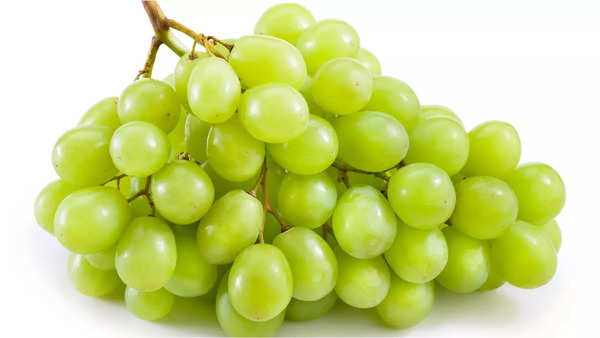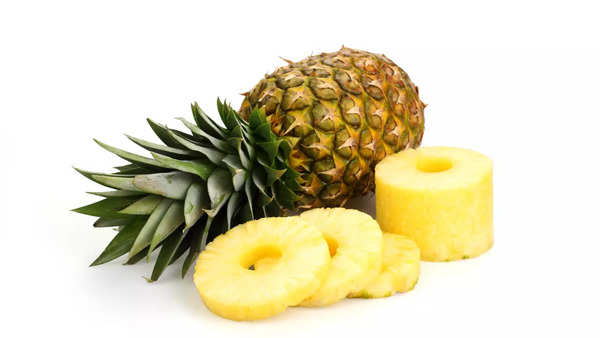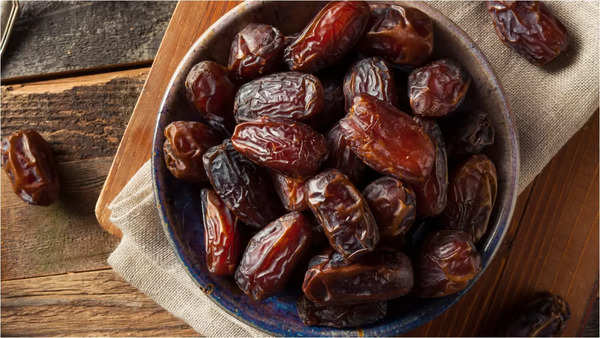When it comes to a balanced diet, fruits are often recommended to be added in the daily diet, afterall, they are rich in nutrients and are packed with essential vitamins and minerals and typically low in calories. But, did you know that there are fruits which are dangerous for those suffering from diabetes? Wondering why? Scroll down to read the details.
Why are some fruits dangerous for diabetic people?
There are fruits which have high glycemic index, which when consumed can spike blood sugar levels, as the body struggles to break down glucose and may lead to type 1 and 2 diabetes.
For the unversed, type 1 arises when insulin-producing cells, which regulate blood sugar levels, are destroyed by the body and type 2, is often linked to obesity or insufficient physical activity. As per experts, fruits with a higher glycemic index (GI) should be avoided by diabetic people.
What is glycemic index (GI)?
As per experts, it is a rating system, which indicates how rapidly foods containing carbohydrates impact your blood sugar level when consumed alone. It is said that high GI foods break down very quickly causing blood glucose levels to rise sharply.
Take a look at fruits people should avoid at all costs.
Bananas: They are high in carbohydrates and natural sugars, which are said to spike blood sugar levels when consumed regularly.
Grapes: As per experts, their high glycemic index can lead to rapid increases in blood sugar, which can be dangerous for those with diabetes.

Cherries: While they are mostly considered healthy, they can be high in sugar, and hence combining them with other fibrous foods and portion control is important.
Mangoes: They are sweet and delicious but also high in sugar, potentially affecting blood sugar levels, when not consumed in controlled manner.
Pineapple: This fruit is also said to contain significant amount of sugar, which can impact blood sugar management.

Figs: While they are very healthy, they are dense in sugars and can quickly raise blood glucose levels.
Dried Fruits: Often concentrated in sugars and calories, they can be dangerous and are not suitable for diabetics, when consumed in excess.
Dates: Dates are very sweet and contain concentrated sugars, which can lead to spikes in blood glucose. Also, they have a moderate glycemic index, hence, portion control is crucial to prevent blood sugar spikes, suggest experts.

Oranges: While they have low GI levels, but are rich in natural sugars, which can impact blood sugar levels, especially when consumed in large quantities.
Thumb and Embed Images Courtesy: istock
var _mfq = window._mfq || [];
_mfq.push([“setVariable”, “toi_titan”, window.location.href]);
!(function(f, b, e, v, n, t, s) {
function loadFBEvents(isFBCampaignActive) {
if (!isFBCampaignActive) {
return;
}
(function(f, b, e, v, n, t, s) {
if (f.fbq) return;
n = f.fbq = function() {
n.callMethod ? n.callMethod(…arguments) : n.queue.push(arguments);
};
if (!f._fbq) f._fbq = n;
n.push = n;
n.loaded = !0;
n.version = ‘2.0’;
n.queue = [];
t = b.createElement(e);
t.async = !0;
t.defer = !0;
t.src = v;
s = b.getElementsByTagName(e)[0];
s.parentNode.insertBefore(t, s);
})(f, b, e, ‘https://connect.facebook.net/en_US/fbevents.js’, n, t, s);
fbq(‘init’, ‘593671331875494’);
fbq(‘track’, ‘PageView’);
};
function loadGtagEvents(isGoogleCampaignActive) {
if (!isGoogleCampaignActive) {
return;
}
var id = document.getElementById(‘toi-plus-google-campaign’);
if (id) {
return;
}
(function(f, b, e, v, n, t, s) {
t = b.createElement(e);
t.async = !0;
t.defer = !0;
t.src = v;
t.id = ‘toi-plus-google-campaign’;
s = b.getElementsByTagName(e)[0];
s.parentNode.insertBefore(t, s);
})(f, b, e, ‘https://www.googletagmanager.com/gtag/js?id=AW-877820074’, n, t, s);
};
function loadSurvicateJs(allowedSurvicateSections = []){
const section = window.location.pathname.split(‘/’)[1]
const isHomePageAllowed = window.location.pathname === ‘/’ && allowedSurvicateSections.includes(‘homepage’)
if(allowedSurvicateSections.includes(section) || isHomePageAllowed){
(function(w) {
function setAttributes() {
var prime_user_status = window.isPrime ? ‘paid’ : ‘free’ ;
w._sva.setVisitorTraits({
toi_user_subscription_status : prime_user_status
});
}
if (w._sva && w._sva.setVisitorTraits) {
setAttributes();
} else {
w.addEventListener(“SurvicateReady”, setAttributes);
}
var s = document.createElement(‘script’);
s.src=”https://survey.survicate.com/workspaces/0be6ae9845d14a7c8ff08a7a00bd9b21/web_surveys.js”;
s.async = true;
var e = document.getElementsByTagName(‘script’)[0];
e.parentNode.insertBefore(s, e);
})(window);
}
}
window.TimesApps = window.TimesApps || {};
var TimesApps = window.TimesApps;
TimesApps.toiPlusEvents = function(config) {
var isConfigAvailable = “toiplus_site_settings” in f && “isFBCampaignActive” in f.toiplus_site_settings && “isGoogleCampaignActive” in f.toiplus_site_settings;
var isPrimeUser = window.isPrime;
var isPrimeUserLayout = window.isPrimeUserLayout;
if (isConfigAvailable && !isPrimeUser) {
loadGtagEvents(f.toiplus_site_settings.isGoogleCampaignActive);
loadFBEvents(f.toiplus_site_settings.isFBCampaignActive);
loadSurvicateJs(f.toiplus_site_settings.allowedSurvicateSections);
} else {
var JarvisUrl=”https://jarvis.indiatimes.com/v1/feeds/toi_plus/site_settings/643526e21443833f0c454615?db_env=published”;
window.getFromClient(JarvisUrl, function(config){
if (config) {
const allowedSectionSuricate = (isPrimeUserLayout) ? config?.allowedSurvicatePrimeSections : config?.allowedSurvicateSections
loadGtagEvents(config?.isGoogleCampaignActive);
loadFBEvents(config?.isFBCampaignActive);
loadSurvicateJs(allowedSectionSuricate);
}
})
}
};
})(
window,
document,
‘script’,
);
Source link

